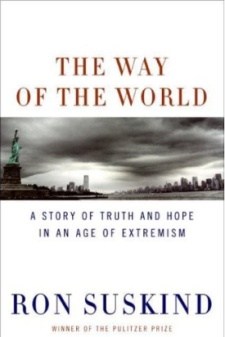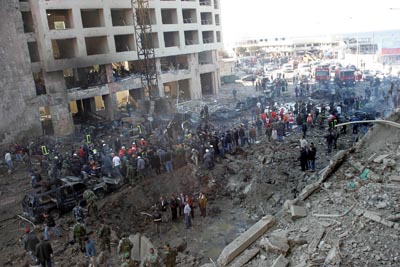An end to torture porn?
The inauguration ceremony was terrible, but no one can honestly say that Obama hasn't lived up to his promises so far:
Of interest here is that we were explicitly told by Bush and co that the "black sites" had already been shut down. This was always dubious because some of the prisoners that were known to have been captured by the Americans, or captured by others and rendered into their care had simply disappeared. Unless they were tortured so badly that they died or committed suicide, they must presumably still be out there somewhere.
The thing that's so invigorating about Obama's initial moves is because it's all been so effortless: just a simple issuing of decrees and the abuses of the Bush adminstration have been washed away, almost as if they never existed. That's part of the problem: however much praise Obama and his team deserve for moving so swiftly to end his predecessor's crimes, we still shouldn't forget that this nation which supposedly didn't and would never torture did so with such ease and with so little soul-searching. Our abiding image of it though isn't those who adminstered the worst of it, or those who authorised it, but instead most probably Lynndie England, cigarette in mouth, pointing at the limp dicks of her captives. How fitting that those who thought they were the cocks of the walk have had their little empire brought down to size so swiftly.
Barack Obama embarked on the wholesale deconstruction of George Bush's war on terror, shutting down the CIA's secret prison network, banning torture and rendition, and calling for a new set of rules for detainees. The repudiation of Bush's thinking on national security yesterday also saw the appointment of a high-powered envoy to the Middle East.
Of interest here is that we were explicitly told by Bush and co that the "black sites" had already been shut down. This was always dubious because some of the prisoners that were known to have been captured by the Americans, or captured by others and rendered into their care had simply disappeared. Unless they were tortured so badly that they died or committed suicide, they must presumably still be out there somewhere.
The thing that's so invigorating about Obama's initial moves is because it's all been so effortless: just a simple issuing of decrees and the abuses of the Bush adminstration have been washed away, almost as if they never existed. That's part of the problem: however much praise Obama and his team deserve for moving so swiftly to end his predecessor's crimes, we still shouldn't forget that this nation which supposedly didn't and would never torture did so with such ease and with so little soul-searching. Our abiding image of it though isn't those who adminstered the worst of it, or those who authorised it, but instead most probably Lynndie England, cigarette in mouth, pointing at the limp dicks of her captives. How fitting that those who thought they were the cocks of the walk have had their little empire brought down to size so swiftly.
Labels: Abu Ghraib, Barack Obama, CIA, extraordinary rendition, Guantanamo, rendition, torture



